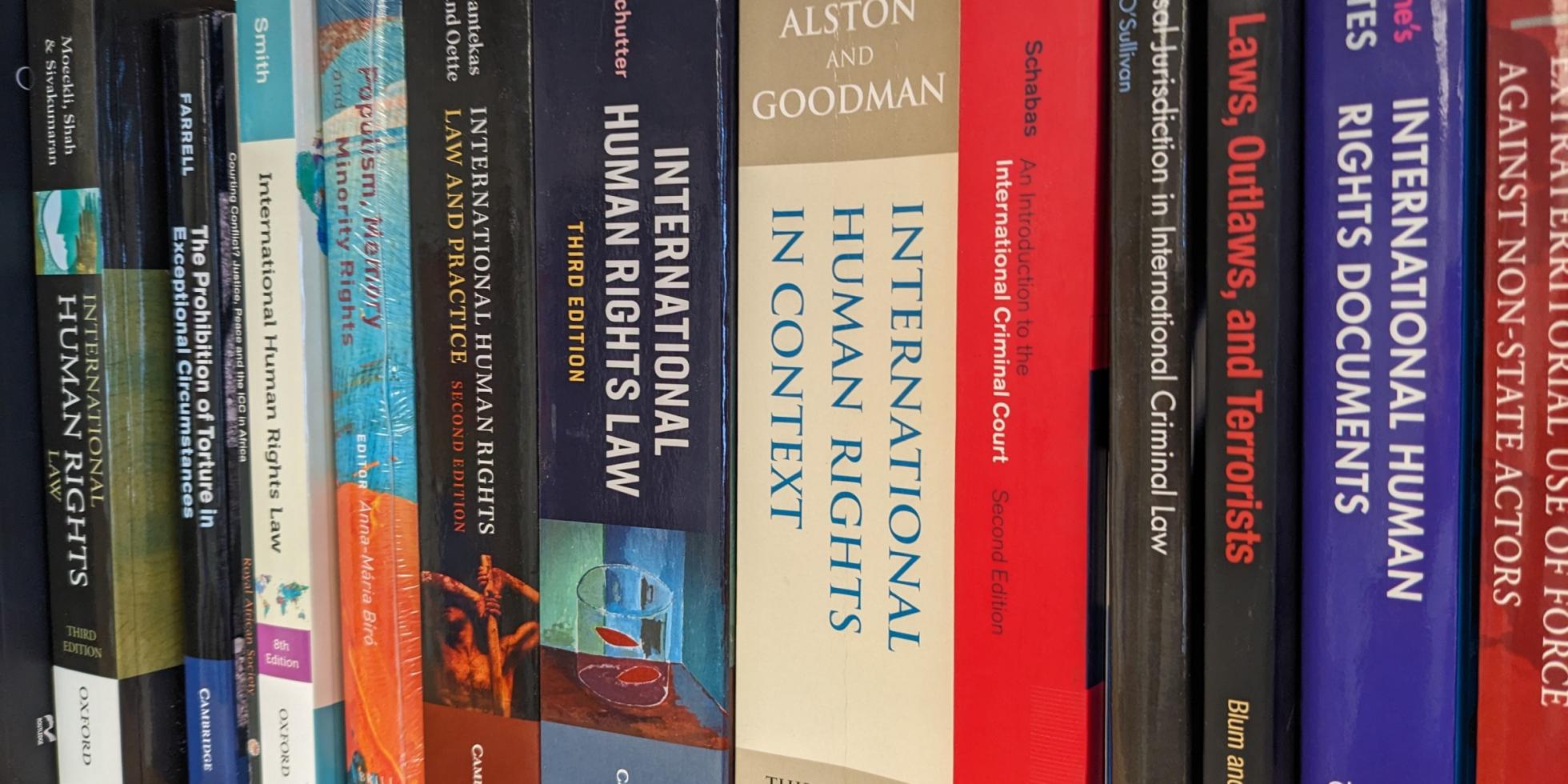The virtual human rights library brings together resources from multiple libraries and information services, both internal and external, to create an online hub dedicated to the study of human rights. This curation is unique in its interdisciplinary concerns and focuses on writings and research from social sciences, humanities, and law.
The virtual library is continually updated with the latest academic research in issue areas, as well as with relevant films, recorded conversations, and other forms of media.
Searchable Database
Click into the dropdowns to select the disciplines, keywords, and media type for your search, and then hit "Apply."
Mark W. Driscoll Absolute Erotic, Absolute Grotesque: The Living, Dead, and Undead in Japan's Imperialism, 1895–1945 (Duke University Press, 2010)
In this major reassessment of Japanese imperialism in Asia, Mark Driscoll foregrounds the role of human life and labor. Drawing on subaltern postcolonial studies and Marxism, he directs critical attention to the peripheries, where figures including Chinese coolies, Japanese pimps...
Shoshana Zuboff The Age of Surveillance Capitalism: The Fight for a Human Future at the New Frontier of Power (New York: Public Affairs, 2019)
Shoshana Zuboff provides startling insights into the phenomenon that she has named surveillance capitalism. The stakes could not be higher: a global architecture of behavior modification threatens human nature in the twenty-first century just as industrial capitalism disfigured the natural...
Angela Davis Are Prisons Obsolete? (Seven Stories Press, 2003)
With her characteristic brilliance, grace and radical audacity, Angela Y. Davis has put the case for the latest abolition movement in American life: the abolition of the prison. As she quite correctly notes, American life is replete with abolition movements...
Frank Pasquale The Black Box Society: The Secret Algorithms That Control Money and Information (Cambridge: Harvard University Press, 2016)
Every day, corporations are connecting the dots about our personal behavior—silently scrutinizing clues left behind by our work habits and Internet use. The data compiled and portraits created are incredibly detailed, to the point of being invasive. But who connects...
Nick Couldry, Ulises Mejias The Costs of Connection: How Data Is Colonizing Human Life and Appropriating It for Capitalism (Stanford: Stanford University Press, 2019)
Just about any social need is now met with an opportunity to "connect" through digital means. But this convenience is not free—it is purchased with vast amounts of personal data transferred through shadowy backchannels to corporations using it to generate...
Wasana Wongsurawat The Crown and the Capitalists: The Ethnic Chinese and the Founding of the Thai Nation (University of Washington Press, 2019)
Despite competing with much larger imperialist neighbors in Southeast Asia, the Kingdom of Thailand—or Siam, as it was formerly known—has succeeded in transforming itself into a rival modern nation-state over the last two centuries. Recent historiography has placed progress—or lack...
Jason Hickel The Divide: A brief guide to global inequality and its solutions (New York: W.W. Norton & Co, 2018)
We have been told that development is working: that the global South is catching up to the North, that poverty has been cut in half over the past thirty years, and will be eradicated by 2030. It’s a comforting tale...
Snigdha Poonam Dreamers: How Young Indians Are Changing the World (Harvard University Press, 2018)
More than half of India is under the age of twenty-five, but India’s millennials are nothing like their counterparts in the West. In a country that is increasingly characterized by ambition and crushing limitations, this is a generation that cannot—and...
Susan Marks A False Tree of Liberty: Human Rights in Radical Thought (Oxford University Press, 2020)
This book is concerned with the history of the idea of human rights. It offers a fresh approach that puts aside familiar questions such as 'Where do human rights come from?' and 'When did human rights begin?' for the sake...
Sheetal Chhabria Making the Modern Slum: The Power of Capital in Colonial Bombay (University of Washington Press, 2019)
In the late nineteenth and early twentieth centuries, Bombay was beset by crises such as famine and plague. Yet, rather than halting the flow of capital, these crises served to secure it. In colonial Bombay, capitalists and governors, Indian and...
Please Note:
While the Virtual Library is now live for use, we are still working to update its contents and improve its functionality.
It is usable by all visitors, but the hyperlinks to materials listed are for UChicago community members with a CNet ID and password.
Please direct feedback and suggestions to Kathleen Cavanaugh.
For technical assistance, email pozenhumanrights @ uchicago.edu.

